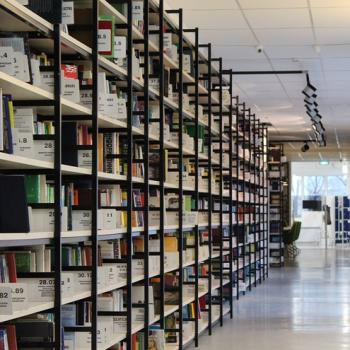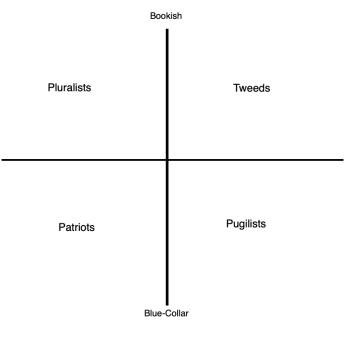 I write this during a very strange Holy Week. With much of the world locked down due to the unfolding coronavirus pandemic, many church bodies have suspended corporate worship—which, for those of us in sacramental traditions, means that we are temporarily unable to receive certain of the means of grace. Sadly, the Triduum—Maundy Thursday, Good Friday, and Easter Sunday—will be a quite different experience this year.
I write this during a very strange Holy Week. With much of the world locked down due to the unfolding coronavirus pandemic, many church bodies have suspended corporate worship—which, for those of us in sacramental traditions, means that we are temporarily unable to receive certain of the means of grace. Sadly, the Triduum—Maundy Thursday, Good Friday, and Easter Sunday—will be a quite different experience this year.
In the midst of this season of isolation, a friend asked me my thoughts on the concept of “virtual communion”—whether that involves parishioners preparing their own bread and wine to be “remotely consecrated” or simply observing the ceremony via livestream. The specifically doctrinal problems with this have been ably argued elsewhere, so I won’t revisit them here. But it seems to me that there’s also an important point of philosophical theology under the surface here, one that goes to the relationship between “Athens and Jerusalem” and how the Christian faith presses beyond certain classical philosophical formulations.
The Christian tradition, when it speaks of the “true, good, and the beautiful,” speaks of the unified reality that is the being of God. God, in short, is Truth itself, Goodness itself, and Beauty itself, and all created truth, goodness, and beauty is a reflection of Him. Accordingly, the contemplation of God in the beatific vision—apprehension of the ideal of the Beautiful—has informed centuries of theological reflection.
A good deal of meditation on the concept of beauty—by both Christian and non-Christian thinkers—has shared the Platonic conviction that some of the human senses are better adapted to apprehending beauty than others. In particular, in keeping with the Platonic motif of ascent from the lower realms of physicality to the higher domains of the intellect, the senses of sight and hearing have traditionally held pride of place. Why might this be so? In Beauty: A Very Short Introduction, noted philosopher Roger Scruton opines that “[t]astes and smells are not capable of the kind of systematic organization that turns sounds into words and tones. We can relish them, but only in a sensual way that barely engages our imagination or our thought. They are, so to speak, insufficiently intellectual to prompt the interest in beauty.”
But the Platonic presupposition at work here— that is, the notion that the human soul must be liberated from the bondage of matter—is alien to Christian thought. On a Christian framing, to be a created human being is to be more than a disembodied consciousness, a Cartesian cogito essentially distinct from the physical order: after all, human beings were created and called good by God in their materiality (Gen. 1:31). And so there is no obvious theological warrant for embracing a Platonic restriction on what may be called beautiful. If the God of beauty (Isa. 33:17) provides food for His image-bearers (Gen. 1:29–30), how can one not see in the event of that gift a reflection of the gift’s Creator? (Additionally, to the extent one wishes to engage Scruton’s argument on its own terms, it is simply untrue that the “lower” senses resist systematization. The wine-appreciation practices of elite sommeliers testify to the contrary.)
And so, when we consider the question of virtual communion, we may ask it through the prism of this philosophical and doctrinal tradition: can the beauty of God be fully apprehended in this form of the rite—a rite in which, traditionally, we encounter Him most intimately in our Christian life? It certainly seems to me that this is not possible. The Eucharist invites us into the engagement of all five of our senses. We hear the priest’s Words of Institution; we see the chalice and ciborium; we smell the scent of the wine and candles; we taste the elements; and we touch the common cup, or perhaps the priest touches our tongue with the Host. The full beauty of God’s self-revelation in Holy Communion is denied to us when it’s mediated through only two of our senses.
So, all that to say that I agree with those who have concluded that virtual communion is no true Communion. Beyond that, though, I think that this more integrated way of thinking about beauty may have some helpful implications for how we engage in public reasoning about coronavirus responses.
Any discussions about the tradeoffs involved in any extended social shutdown regularly degenerate into a simple binary: human life on one side, the economy on the other. But this is facile (for one thing, as many commentators have ably pointed out, a society facing massive death and a collapsed healthcare system cannot maintain economic functionality).
And crucially, the dichotomy ignores the fact that at issue is also a proper reckoning of the various “facets of the good” that are essential to human life and that we are all deprived of—and that, moreover, are bound up with the fuller concept of beauty sketched here. Of course it is possible for me to see and hear my parents over a Skype video chat. But that is very different from being able to hug them, to smell the scent of the flowers in their backyard, or to taste the meals they prepare from scratch. Physical sense experience of the beloved—of the spouse, of the family, of friends, and of God in the Sacraments—is essential to human flourishing. It is not a stretch to observe that the beauty of those relations is temporarily compromised by distancing measures—and the beauty at issue here is an entirely nonquantifiable good, something that can’t be translated into economic terms.
Now, this is not to say that such a compromise is not necessary under the circumstances. Rather, it is to say that some concept of the goods inherent in physical presence is the fulcrum on which really fruitful arguments about proper pandemic responses should turn. The goods of physical presence are necessary conditions for a functioning economy, but they are not reducible to that economy. The true moral question, then, is not a false choice between “life and economy” but a way of balancing the twin goods of preserving life and experiencing the beauty of the physical presence of the beloved.
False choices are easily dissolved through technocratic approaches—why not just give everyone money to stay home indefinitely?—that mask the true difficulty of the decisions involved. Virtuous leadership, by contrast, demands that those choices be presented honestly, even where no immediate resolution is forthcoming. That, I think, is where a fuller-spectrum account of beauty must ultimately lead us.












